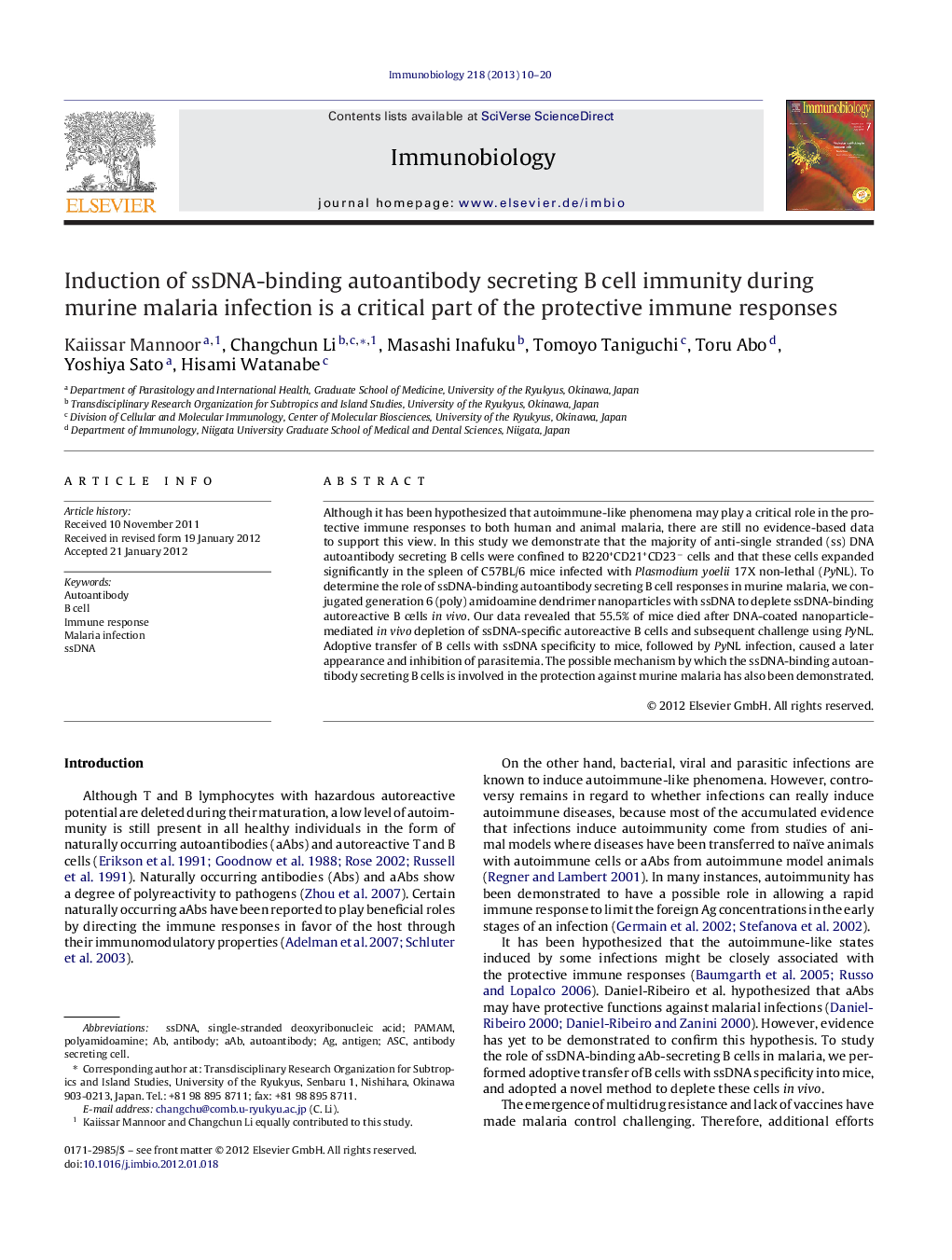| Article ID | Journal | Published Year | Pages | File Type |
|---|---|---|---|---|
| 2183020 | Immunobiology | 2013 | 11 Pages |
Although it has been hypothesized that autoimmune-like phenomena may play a critical role in the protective immune responses to both human and animal malaria, there are still no evidence-based data to support this view. In this study we demonstrate that the majority of anti-single stranded (ss) DNA autoantibody secreting B cells were confined to B220+CD21+CD23− cells and that these cells expanded significantly in the spleen of C57BL/6 mice infected with Plasmodium yoelii 17X non-lethal (PyNL). To determine the role of ssDNA-binding autoantibody secreting B cell responses in murine malaria, we conjugated generation 6 (poly) amidoamine dendrimer nanoparticles with ssDNA to deplete ssDNA-binding autoreactive B cells in vivo. Our data revealed that 55.5% of mice died after DNA-coated nanoparticle-mediated in vivo depletion of ssDNA-specific autoreactive B cells and subsequent challenge using PyNL. Adoptive transfer of B cells with ssDNA specificity to mice, followed by PyNL infection, caused a later appearance and inhibition of parasitemia. The possible mechanism by which the ssDNA-binding autoantibody secreting B cells is involved in the protection against murine malaria has also been demonstrated.
